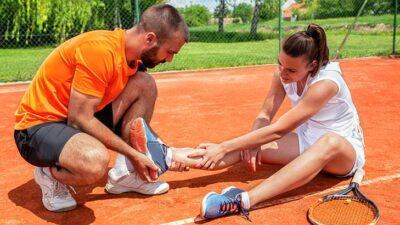Caregivers play a vital role in supporting the well-being of individuals who require assistance with daily activities. Whether caring for a young child, an aging parent, or someone with a chronic illness, providing effective care demands a specific skill set.
This article can serve as a comprehensive guide for caregiver training, equipping you with the fundamental knowledge and techniques necessary to deliver exceptional care. We’ll explore key areas of focus within caregiver training, including communication strategies, daily living assistance techniques, and specialized practices.
By mastering these essential skills, caregivers can confidently navigate the unique needs of their loved ones and ensure a positive care experience for all involved.
Technical and Medical Skills
Equipping yourself with a strong foundation in technical and medical skills is crucial for providing effective care. These skills empower you to assist with daily needs, recognize potential health concerns, and ensure the safety and well-being of the person you’re caring for.
Basic Medical Knowledge
Gaining a solid understanding of common medications, including their purpose and potential side effects, is essential. Many classes for caregivers cover medication management, teaching you how to properly administer pills, organize dosages, and report any concerns to medical professionals. Additionally, familiarizing yourself with basic first aid and CPR (cardiopulmonary resuscitation) procedures can equip you to handle emergencies with confidence.
Hygiene and Sanitation
Maintaining a clean and healthy environment is paramount for preventing infections and promoting overall well-being. Caregiver training programs typically cover proper hygiene techniques, such as handwashing protocols, bathing and toileting assistance, and cleaning and disinfecting surfaces.
Mobility Assistance
Helping individuals move safely and comfortably is a vital aspect of caregiving. This includes learning proper body mechanics for assisting with walking, transferring from bed to chair, and using mobility aids to minimize the risk of falls and injuries for both the caregiver and the care recipient. Many classes for caregivers incorporate practical training sessions to ensure you feel comfortable and confident in providing this type of support.

Communication Skills
Effective caregiving hinges not just on technical skills but also on your ability to communicate clearly and compassionately. Remember, strong communication fosters trust, reduces frustration, and ensures the well-being of the person you’re caring for.
Active Listening
This involves truly focusing on what the care recipient is saying, both verbally and nonverbally. Pay attention to their words, tone of voice, and body language. Ask clarifying questions, too and avoid interrupting. Through active listening, you can better understand the person’s fears or worries.
Clear Communication
Express yourself in a way that’s easy to understand. Start by using short sentences, avoiding medical jargon, and confirming understanding by asking questions. For individuals with hearing impairments, speak slowly and clearly, and be mindful of their preferred communication method (e.g., written notes, sign language).
Emotional Intelligence
Caregiving might also be stressful both for the person giving care and the one receiving it. This is where developing emotional intelligence comes in, allowing you to recognize and manage your own emotions, as well as understand and respond constructively to the emotions of the person you’re caring for. Caregiver training programs can be beneficial in this; they can offer guidance on reducing tensions, validating feelings, and creating a supportive environment.
Non-Verbal Communication
Not all communication is verbal. Being attuned to non-verbal cues, such as facial expressions, body language, and posture, can provide valuable insights into a person’s emotional state and physical needs. For instance, slumped shoulders might indicate sadness, while furrowed brows could suggest confusion. Caregiver training can help you interpret these nonverbal signals and adjust your communication accordingly.
Supporting Emotional Well-Being
Caring for someone with emotional and mental health challenges requires a deep understanding and proactive management strategy. With this in mind, it’s important for caregivers to know how to recognize and address the psychological needs of those they support.
Recognizing Signs of Emotional Distress
Changes in mood, appetite, sleep patterns, or social behavior can signal emotional or mental health challenges. Caregiver training programs can equip you with the right knowledge to help you identify potential signs of depression, anxiety, or other conditions commonly faced by care recipients. For instance, increased withdrawal from social interaction might indicate loneliness, while sudden tearfulness could suggest underlying sadness.
Managing Challenging Behaviors
Individuals with dementia, autism, or other conditions may exhibit challenging behaviors that can be frustrating for both parties. Caregiver training can help you learn positive behavior management techniques, such as redirection, de-escalation strategies, and establishing clear routines. These tools can help you understand the reasons behind the behavior and respond in a way that promotes safety and well-being.
Fostering a Positive Mental Environment
Creating a supportive and stimulating environment plays a crucial role in one’s emotional well-being. Caregiver training programs can introduce strategies like incorporating calming music playlists, engaging in pet therapy (if appropriate), or encouraging participation in hobbies and activities the care recipient enjoys.
The Power of Patience and Empathy
Patience and empathy are two basic attributes in caregiving, with great effects on the effectiveness of the caregiver and, inversely, the well-being of the care recipient.
Developing Patience
Caregiving can be demanding. There will be moments when routines are disrupted, tasks take longer than expected, or frustration bubbles up. Developing patience is key to navigating these challenges effectively. Learning to take breaks and prioritize self-care can also help you approach caregiving situations with renewed patience and understanding.
For instance, imagine a situation where a person with dementia struggles to remember how to complete a familiar task like dressing themselves. Getting impatient or flustered might escalate the situation. However, by employing patience, you can calmly offer gentle guidance and encouragement, creating a more positive experience for both of you.
Cultivating Empathy
Essentially, empathy is the awareness of another person’s feelings. Caregiving allows you to connect with the care recipient on a deeper level. By validating their emotions and offering support tailored to their needs, you can truly make a difference in their well-being.
Imagine taking care of someone who has just lost her husband or his wife. By putting yourself in their shoes and recognizing their grief, you can offer a listening ear, a comforting touch, or simply a quiet presence. This empathetic response demonstrates your understanding and strengthens the bond between caregiver and care recipient.
Specialized Care Procedures
While the core principles of caregiving remain consistent, the specific needs of individuals can vary greatly. Training for caregivers often dives into these specialized procedures to prepare you with knowledge and skills in situations like:
Condition-Specific Care
Many conditions, such as Parkinson’s disease, multiple sclerosis (MS), or post-operative recovery, require tailored care approaches. Depending on the training program, some might cover specific techniques for managing tremors, assisting with transfers for individuals with MS, or providing wound care after surgery. This specialized knowledge can empower you to provide targeted support and optimize the well-being of the person you’re caring for.
Technology Integration
Caregiver training can introduce you to helpful tools like medication management apps that send reminders and track dosages, wearable fall detection devices that offer peace of mind, or even communication apps specifically designed for individuals with speech limitations. By integrating technology seamlessly into your care routine, you can streamline tasks, improve safety, and promote independence for seniors with chronic illnesses.
Emergency Preparedness
Being prepared for unexpected situations is crucial in caregiving. Training programs can equip you with the knowledge and skills to handle emergencies specific to the care recipient’s health condition. Such learning includes being able to recognize and respond to a diabetic episode or how to control seizures.
Empowering Yourself, Enriching Lives
Caregiving is a rewarding journey filled with opportunities to make a real difference in someone’s life. By equipping yourself with the essential skills explored in this article, you can be more empowered to navigate the challenges and embrace the joys of this vital role. However, remember that caregiver training is an ongoing process.
That said, as you gain experience and encounter new situations, seek out additional resources, attend workshops, and connect with other caregivers for continued learning and support.







 This article changed my life!
This article changed my life! This article was informative.
This article was informative. I have a medical question.
I have a medical question.
 This article contains incorrect information.
This article contains incorrect information. This article doesn’t have the information I’m looking for.
This article doesn’t have the information I’m looking for.